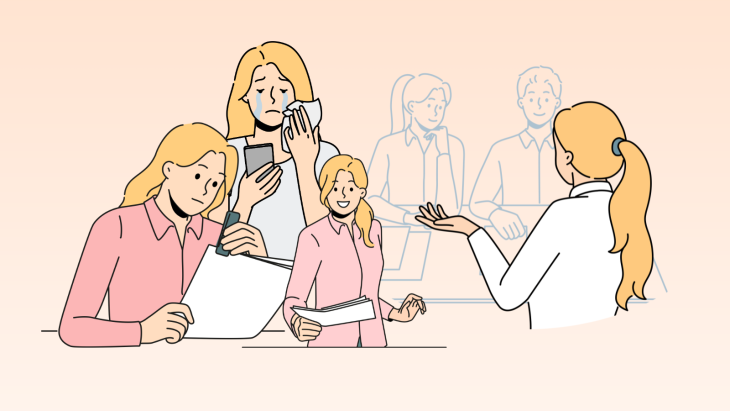Recent Posts
- I broke up with my partner, but now I am having doubts. Did I do it out of the right reasons or was I just being fearful?
- My Quick Temper Pushes People Away. What Do I Do To Manage My Anger?
- How does noise affect my mental health?
- I want to be a better problem solver. What is a step by step approach?
- Escapism. When is it healthy? When is it damaging?
Most Popular
I want a promotion, but my manager says I need to develop more soft skills.

I want a promotion, but my manager says I need to develop more soft skills.
What skills does the global workforce need?
A workplace education organization set out to answer this question and they found that by 2030, more than 50% of jobs in the market will require soft skills. Also, the number of jobs that require advanced soft skills are expected to increase faster than other jobs.
What are hard skills and soft skills?
Learning hard skills requires time for formal education, training, and a lot of effort. Hard skills are technical abilities that have been acquired in order to perform specific jobs.
These skills, when practiced over time, even become more specialized and perfected. Imagine a doctor who becomes a seasoned and an expert medical provider as they acquire vast comprehension of illnesses and improve their abilities in giving treatment and performing procedures. These are hard skills that develop in the long run through repeated experiences.
Soft skills, on the other hand, develop when we acquire and enhance our skills for good interpersonal relationships such as communication, teamwork, time management, leadership, problem-solving skills, etc.
The World Economic Forum cited 10 out of 16 necessary proficiencies in the 21st century as non-technical or soft skills- those that will be practical and useful across all industries and jobs.
What are some of these soft skills and how can you develop them?
- Emotional intelligence leading to more empathy.
When emotional intelligence increases in a workplace, especially when it is practiced by people in leadership position, leaders are able to:
- Understand their teammates’ motivations
- Empower themselves to intervene and motivate their teammates more effectively
- Become more sensitive to the team’s needs, and see opportunities on how to meet these needs
- Develop empathy that allows them to resolve conflicts in an impartial way
Emotional intelligence is developed with study and persistent effort, until it becomes part of your character. It starts with becoming more aware of your own thoughts, feelings and perspective. Checking your own possible biases, learning different and more balanced approaches to things and applying them consistently increases emotional intelligence.
It has been shown that training people how to communicate with empathy increased their friendly and helpful behavior. It takes study and application of theories of communication to become more emotionally intelligent.
- Teamwork and Collaboration
A market data research has found that collaborative work increased a team’s performance 5 fold and almost all of the employees surveyed believe that when collaboration is lacking, a task’s outcome is negatively affected.
This shows us that naturally, people crave for synergy, as it affects productivity and work satisfaction.
Collaboration and teamwork or the lack of them is seen in workplace culture. It takes both the management’s efforts to create processes that enhance collaboration and the workers’ efforts to participate in order for a collaborative culture to be established.
- Resilience in character.
When resilience, the ability to recover from setbacks and challenges, develops as part of an employee’s character, they are more able to manage stress and focus on building strong relationships with their teammates. These relationships are built through effective communication skills such as active listening and emotionally-regulated responses to conflict.
When workers are resilient, they display more problem-solving capabilities and are more helpful towards others.
In order to develop resilience, companies must be able to provide social support in times of stress at work. Establishing programs that teach employees healthy stress management skills that they can practice also adds to resilience.
Many other soft skills like effective communication, time management, problem-solving and continuous learning can be developed in order to prepare you for career growth. As you recognize the importance of these soft skills, take the time to learn and get better at them. Soon you will find yourself a highly valuable member of the team.







Comments